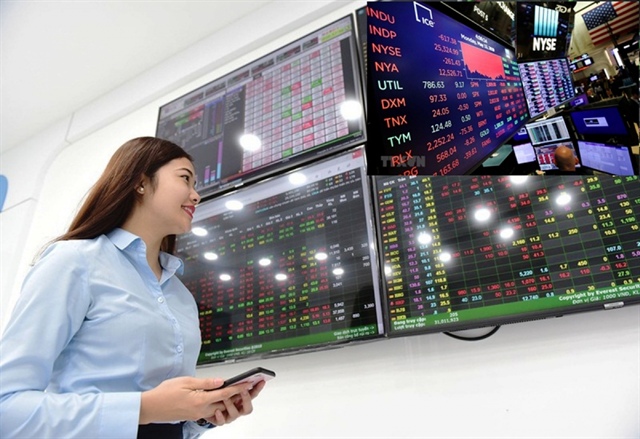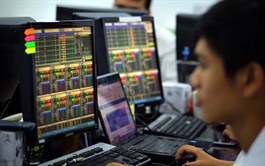Vietnam’s stock market promises long-term growth
Vietnam’s stock market promises long-term growth
The Vietnamese stock market promises long-term growth due to the quick post-pandemic recovery of key sectors, such as aviation, retail and pharmaceuticals.

The VN-Index is expected to fluctuate in a range of 1,700-1,800 points in 2022 |
Upbeat market outlook
Dinh Quang Hinh, head of the Macroeconomics and Market Strategy Department under the VNDIRECT Securities Corporation, said the US Federal Reserve’s approval of a 0.25 percentage point rate hike has eased investors’ pessimism and caution. As a result, the Vietnamese stock market has gradually recovered after correcting to the support zone of 1,440-1,450 points.
The market is also expected to improve further as Ukraine-Russia negotiations progress, and the Vietnamese government is making greater efforts to accelerate public investment disbursement. In addition, positive first-quarter business results will add impetus to the market.
The Vietnamese economy’s recovery is clearly reflected in significant increases in industrial production and exports. Economists expect that cash flows will return to the stock market at the end of the second quarter. Investors should continue restructuring their investment portfolios, focusing on industry groups that directly benefit from the government’s huge support packages or public investment policies in areas such as construction, building materials, real estate and consumer goods.
VN-Index uptrend likely
Vo The Vinh from Guotai Junan Securities Vietnam said the VN-Index is expected to fluctuate between 1,700-1,800 points in 2022. The Vietnamese government still shows the ability to control inflation well and the VN-Index may surpass the threshold of 1,500 points in April, Vinh said.
Ngo The Hien, head of the Analysis Division under the Saigon-Hanoi Securities Company (SHS), said gross domestic product (GDP) growth in the second quarter could also contribute to the development of the Vietnamese stock market. Specifically, the government issued Resolution 11/NQ-CP on socioeconomic recovery measures, including value-added tax (VAT) reduction from 10 percent to eight percent and interest rate reduction to support businesses. In addition, the prime minister directed departments and agencies to increase public investment disbursement in order to create favorable conditions for recovery and growth momentum. Vietnam also reopened to international tourism on March 15 after being closed off to most foreign arrivals for two years, prompting hopes of recovery for its tourism and aviation sectors.
Positive first-quarter business results of listed companies, especially those in industry groups that directly benefit from the government’s huge support packages or public investment policies, such as construction, building materials, real estate and consumer goods, are also expected to boost the market.
Do Hong Van, head of the Data Analysis Group under the Financial Information Service at FiinGroup, said investors can drive their cash flows towards sectors, such as hydropower, pharmaceuticals and retail, in order to avoid inflationary risks.
| The transparency and efficiency of the Vietnamese stock market are improving in order to meet the criteria for upgrading to emerging market status. |
























